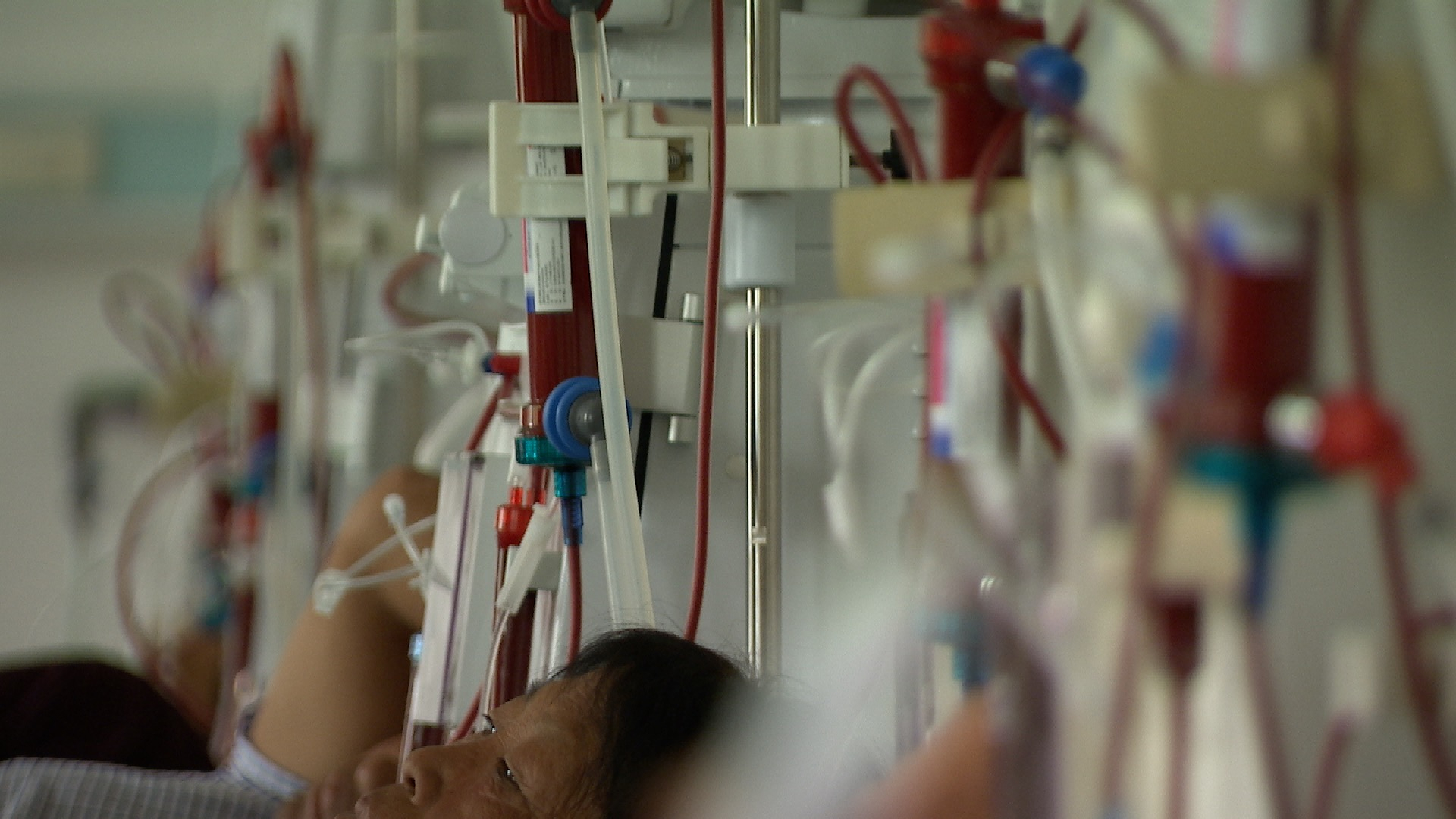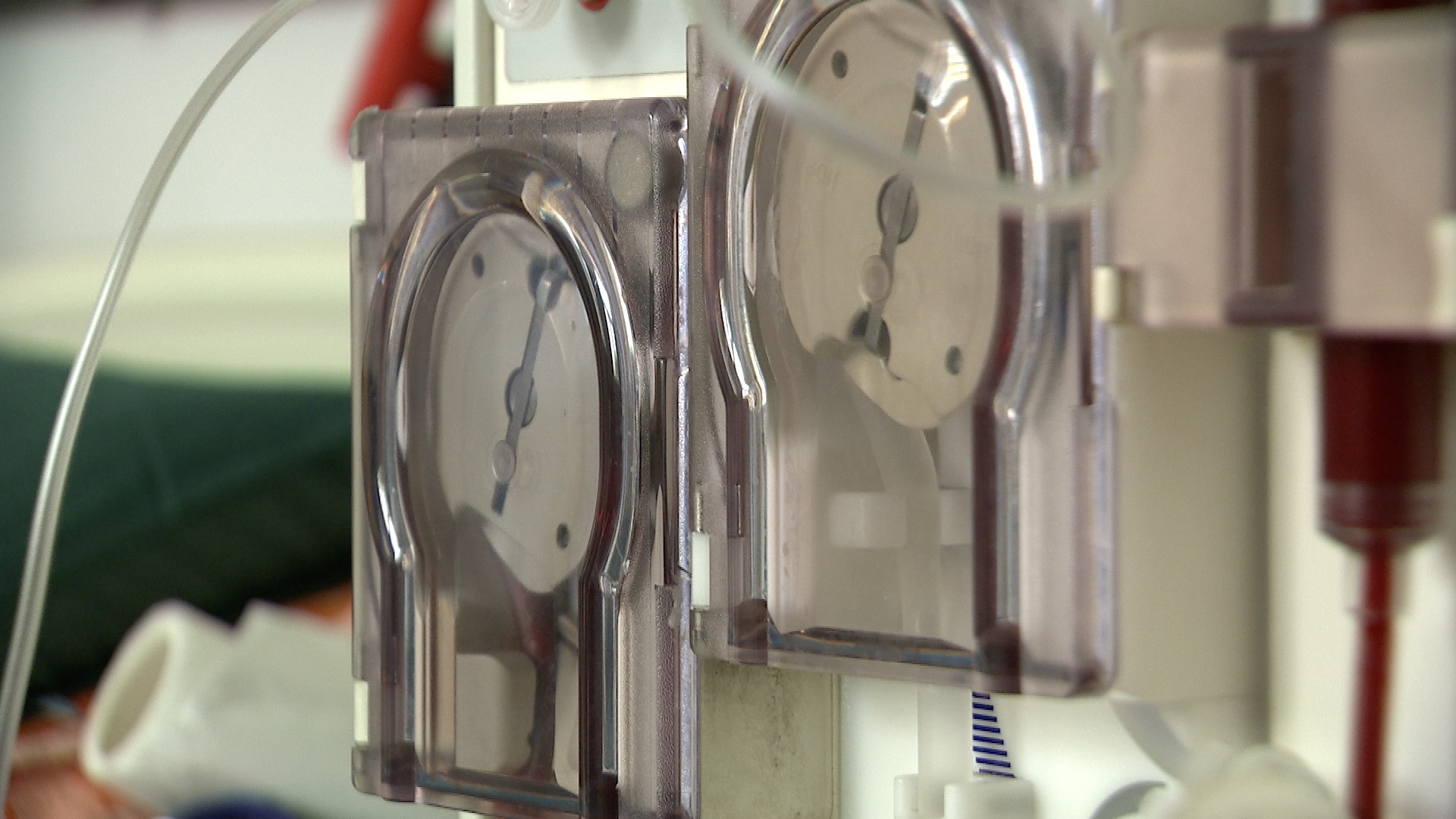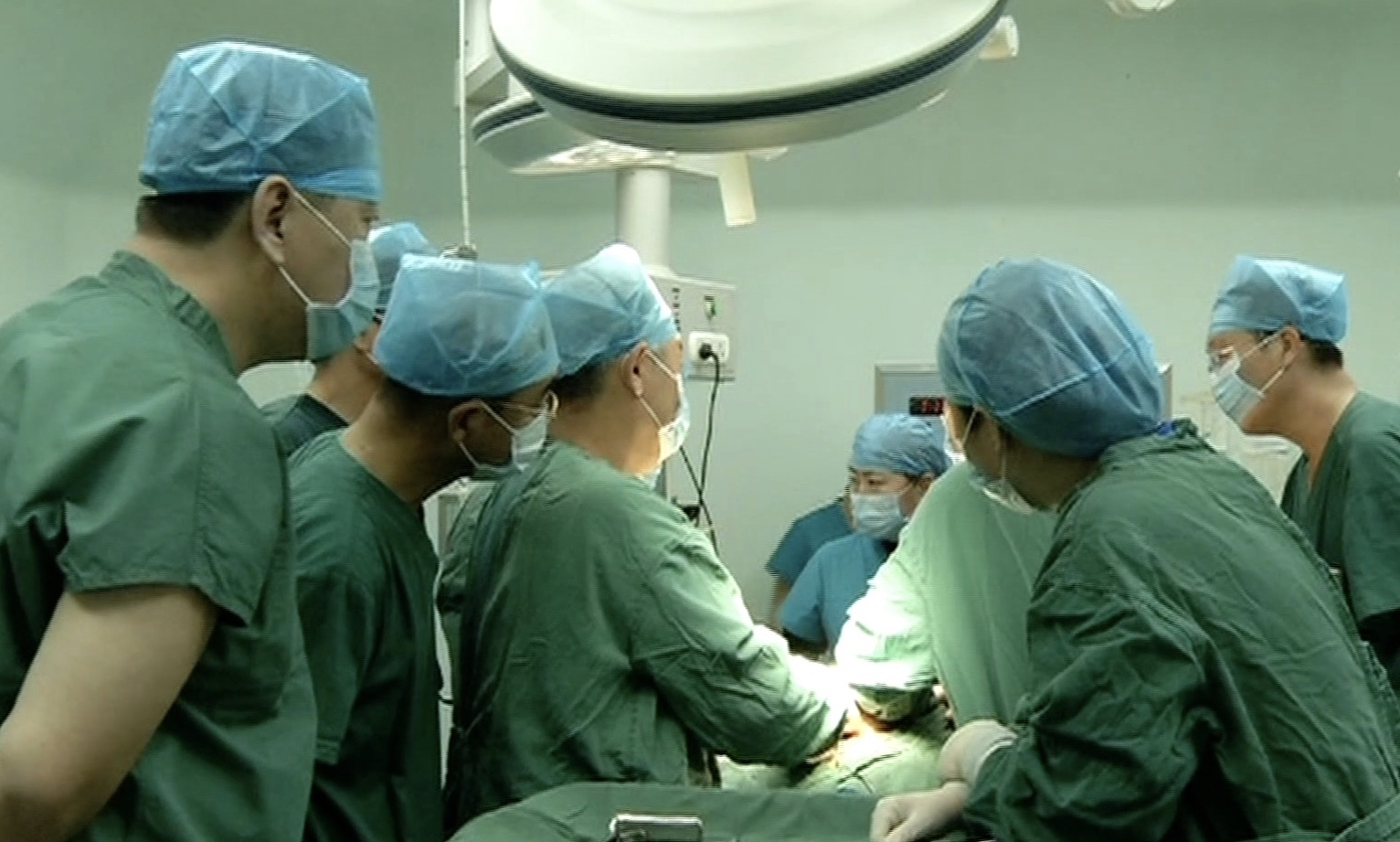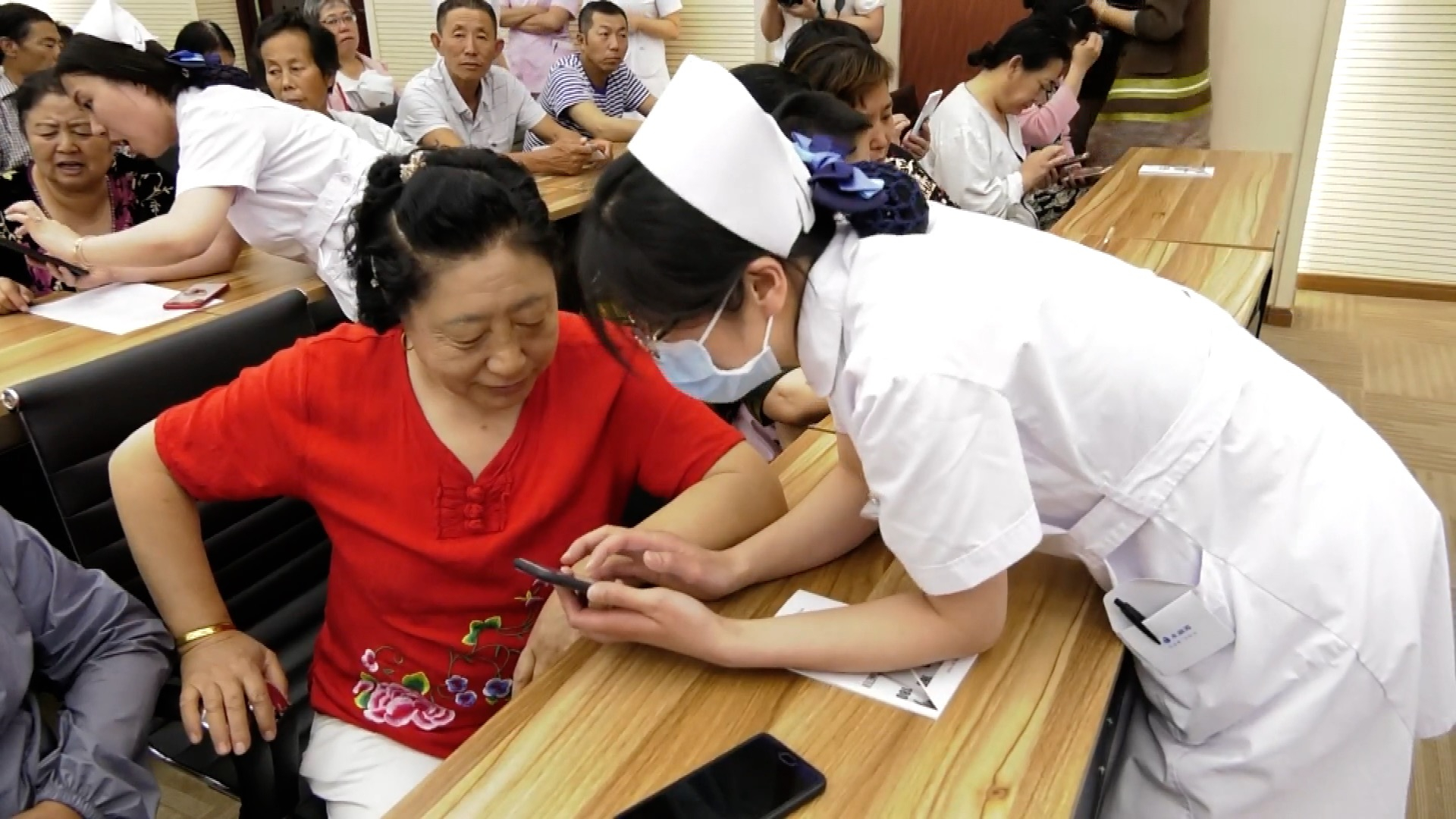

While progress has been made in reducing poverty in China’s northeastern Liaoning Province, many families are still struggling with financial hardships caused mostly by major or chronic diseases.
In Jianchang, a less-developed county in the west of the province, many patients with kidney disease rake up high medical bills for dialysis treatment at least twice a week to sustain their lives.
Wang Naiyi, who has been receiving dialysis for over 13 years, said he used to worry about where to borrow enough money for the next treatment. He described the disease as a bottomless pit and said he couldn’t even afford to pay his loans.
"It's all thanks to the new reimbursement policies for the vulnerable that I no longer need to spend much or worry about the future," Wang said.

A dialysis machine. /CGTN Photo
It’s a huge leap forward compared to a decade ago, when a uremia patient in Jianchang used to spend the equivalent of more than 10,000 U.S. dollars a year. Now they get better detox treatment with smaller financial burdens.
Lyu Guofei, director of the Hemodialysis Center at the local hospital, said the reimbursement proportion of governmental healthcare for low-income uremia patients has grown throughout the years to over 92%. And the hospital he works at has further reduced the remaining costs. "For example, there a patient spent 99,000 yuan and only paid 3,400 herself – that’s a discount of more than 96%," Lyu added.
Apart from the reductions, a fast track has been set up for impoverished patients to get treatment before making payments. That has helped to sustain life for many with not only uremia but other deadly diseases.
With the fast track system in place, another beneficiary Yao Shuangzhan finally had a surgery last year and managed to remove a huge tumor that he had suffered with for years because of a lack of funds. "It’s like giving me a second life. As I gradually recovered, now I can even make a living by working outside my hometown," Yao told CGTN via video chat.

Yao Shuangzhan received surgery last January to remove a tumor that weighed 25 kilograms. /Jianchang TV Station
But poverty alleviation in healthcare is not all about better treatment and lower costs. Many efforts have also been made in an intangible way – like training village doctors, who work most closely with patients in the least developed areas.
The training comes from teams like the one from the First Affiliated Hospital of China Medical University, whose program seeks to fundamentally change the high incidence and low awareness of high blood pressure in the region.

The nursing team taught local health workers and residents to use an app to monitor their blood pressure /Liaoning TV Station
Wang Aiping, director of the hospital’s nursing department, said they took advantage of their research and talents to train medical personnel in western Liaoning on treating high blood pressure.
"Therefore, we will develop a professional team that cannot be taken away, that can stop the complication of high blood pressure that costs patients more," Wang added.
Poverty reduction work also aims to help bring sick breadwinners back to the workplace. In Jianchang, local hospitals have provided several uremia patients from remote villages with job opportunities working as security personnel at their facilities so that they can generate income and stay for ongoing treatment. All the measures are aimed at giving these families another chance at life and taking them out of poverty made worse by illnesses.

Copyright © 2018 CGTN. Beijing ICP prepared NO.16065310-3
Copyright © 2018 CGTN. Beijing ICP prepared NO.16065310-3